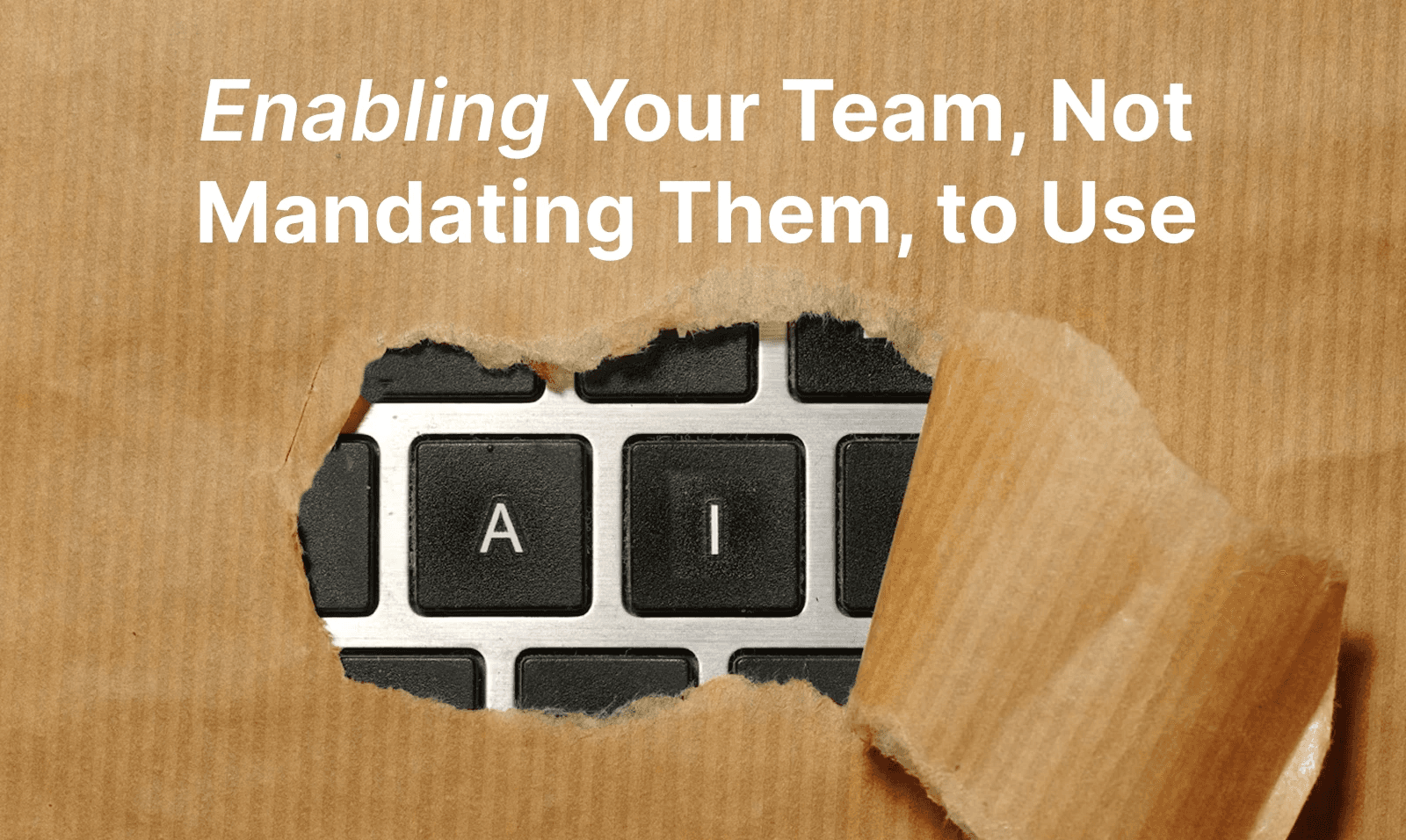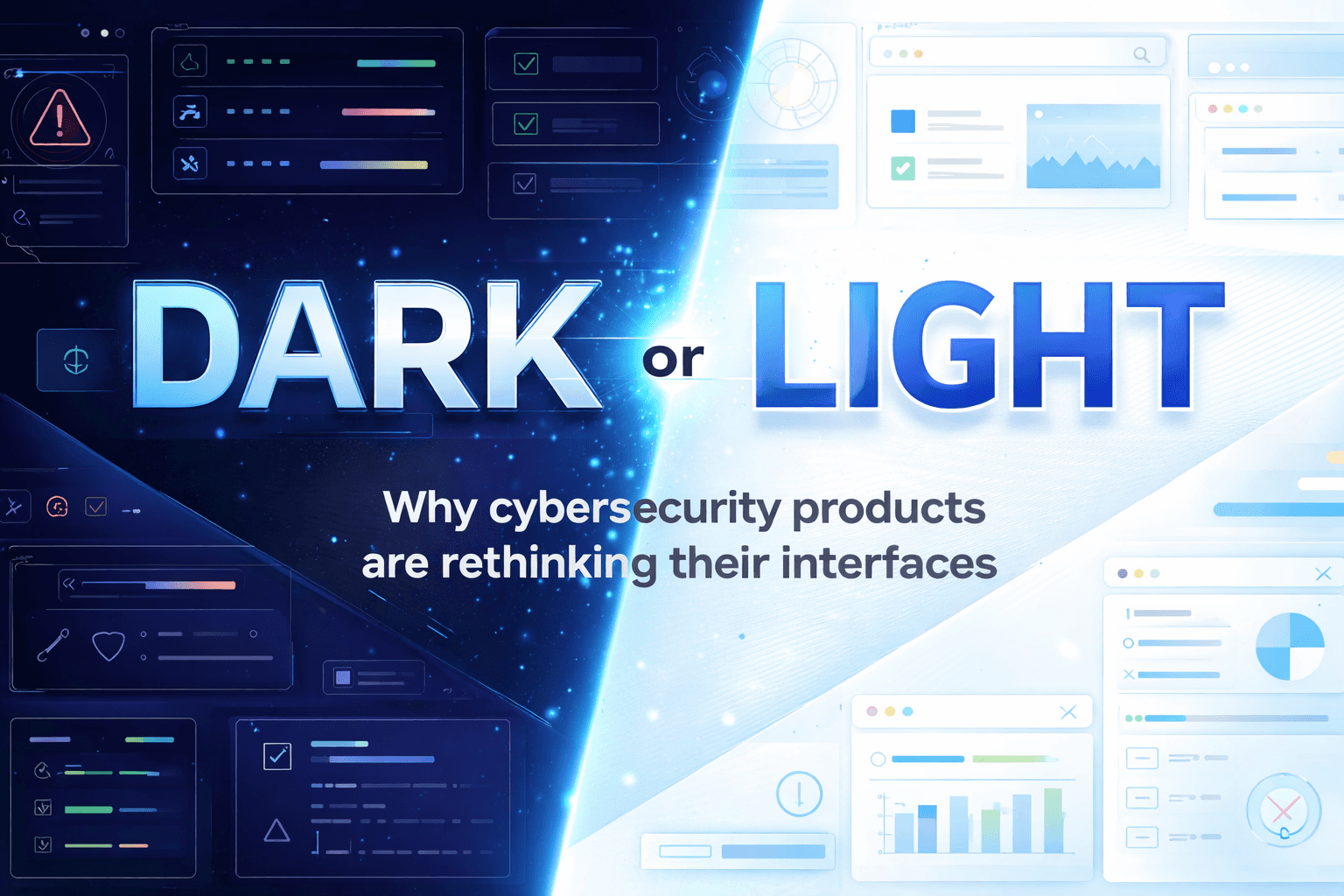Design
Author:
Austin McDaniel
Date:
Jun 10, 2024

Introduction
At the recent Graph the Planet conference at RSA, I had the chance to discuss the future of user interfaces (UI) in the era of generative AI. We explored how AI and UI can work together, especially in cybersecurity. Now, I'd like to share some key points from that discussion and explain why combining AI with a well-designed UI is so important for creating effective and user-friendly cybersecurity solutions.
Why Cybersecurity Products Need AI and Why AI Needs a Good UI
As cybersecurity threats grow in complexity and volume, AI becomes essential for managing these challenges. However, the success of AI in cybersecurity isn't just about the power of the AI model itself. A well-designed UI is crucial to making AI tools effective and user-friendly.
The truth is that UI is more important than ever. Generative AI can make UIs smarter by automating complex tasks and improving user experiences.This partnership means AI provides the data and analysis, while the UI makes it easy for users to interact with and understand that information. Again, a great AI model alone is not enough; an intuitive and transparent UI is essential to make AI tools effective and user-friendly. A clear and accessible UI ensures that users can trust AI outputs and leverage AI capabilities to enhance their cybersecurity operations.
By integrating AI with a well-designed UI, users can fully harness the power of AI, making complex cybersecurity tasks more manageable and improving overall efficiency and satisfaction. This combination allows users to make informed decisions quickly and confidently, ultimately strengthening their security posture.
Empowering Analysts of All Levels
Generative AI can greatly enhance the abilities of analysts at all levels, especially juniors. With AI copilots, analysts can perform advanced tasks, gain insights, and make confident decisions. This change can improve workforce efficiency. For example, AI can help analyze network traffic to find anomalies or create complex security data for training. For junior analysts, this means quickly upgrading their skills and contributing more effectively to their teams. A well-designed UI ensures that these AI features are easy to use and understand, allowing analysts to interact with AI tools smoothly.
Challenges and Solutions in AI Integration
Bringing AI into UI comes with several challenges that need to be tackled to make them work well together:
Transparency: Users need to see how AI makes its decisions. Showing the AI’s process through the UI builds trust and helps users make informed choices.
Reliability: AI must provide accurate and reliable results. Avoiding hallucinations (incorrect AI-generated content) is crucial, especially in cybersecurity. A strong UI can present these results clearly and point out any uncertainties.
User Feedback: Continuous feedback from users is essential for improving AI tools. This feedback loop enhances AI accuracy and user satisfaction over time. A good UI makes it easy for users to give feedback.
Practical Applications and Examples
When discussing generative AI UIs, two main types emerge: prompt-based systems and contextually aware chatbots.
Prompt-Based Systems: These are excellent for analysis and research. For example, ChatGPT can help users generate reports, answer complex questions, and provide detailed analysis by simply inputting prompts.
Contextually Aware Chatbots: These chatbots act as companions embedded within applications. They provide recommendations and insights directly within the user’s workflow, enhancing productivity. They can answer questions, give recommendations, and generate reports based on user interactions.
Generative AI can be utilized in various practical applications within cybersecurity:
Simulating Phishing Attacks: AI can generate realistic phishing scenarios for training purposes. If a user falls for one, they can be automatically directed to training modules through an easy-to-use interface. This proactive approach strengthens security without burdening users with unnecessary training.
Automating Incident Response: AI can conduct reconnaissance and take predefined actions, such as blocking a firewall threat, without human intervention. This speeds up response times and reduces the workload on security teams. A clear UI ensures that users can monitor these automated actions and step in when needed.
For example, a customer using generative AI to create phishing scenarios benefits from the AI's ability to craft realistic phishing emails. If someone falls for the trap, it can trigger automatic training, seamlessly integrated into the UI. Similarly, AI can automate incident response by conducting reconnaissance and taking actions like blocking a firewall without human intervention, all while the UI provides clear, real-time updates.
Advanced Visualization and Interaction
One of the standout features of generative AI in UI is its ability to improve data visualization and interaction. For example, think of Clippy from Microsoft Word. Generative AI can take this idea further by creating smart chatbots that work within applications. These chatbots can answer questions, give advice, and even create detailed reports based on what the user asks.
Additionally, AI-generated graphs and visualizations can change how users interact with data. For instance, Microsoft’s security copilot can create complex attack graphs that help security professionals quickly understand and respond to threats. By showing AI-generated data visually, users can gain deeper insights and make better decision
Safeguarding Data and Ensuring Compliance
As powerful as generative AI can be, it also comes with risks, particularly concerning data privacy and compliance. During my talk, I emphasized the importance of safeguarding sensitive information when using AI tools. For instance, when users input sensitive data into AI systems, mechanisms should be in place to detect and warn about potential data leaks. Simple steps like regex checks for Personally Identifiable Information (PII) can prevent accidental data exposure, and a good UI can alert users to these issues clearly and effectively.
Additionally, creating audit trails for AI interactions is crucial in cybersecurity. By recording the questions asked and the AI’s responses, organizations can keep detailed records that are essential for compliance and investigations. This ensures that AI tools not only boost productivity but also meet strict security and regulatory standards.
Looking Ahead
In the future, AI and UI will work together smoothly, each making the other better. An example from Good Code’s portfolio is a UI project for Black Wire, created to help small businesses manage compliance requirements with AI-driven assistance. This project shows how AI can provide reliable, user-friendly solutions in a safe and guided way, thanks to a well-designed UI.
Conclusion
As generative AI evolves, its integration with UI will open new possibilities in design and functionality. By addressing challenges and using the strengths of both AI and UI, we can create more powerful, user-friendly applications. Staying adaptable and forward-thinking in design and implementation is crucial for those looking to stay ahead in this rapidly advancing field. A great AI model is only part of the solution; a well-designed UI ensures that the full potential of AI is realized, making complex cybersecurity tasks more manageable and efficient for users.
Ready to transform your AI or cybersecurity product with an outstanding UI? At Good Code, we specialize in designing and building intuitive, powerful user interfaces that enhance the capabilities of your AI solutions. Contact us today to see how we can help elevate your products to the next level. Contact us to get started!





